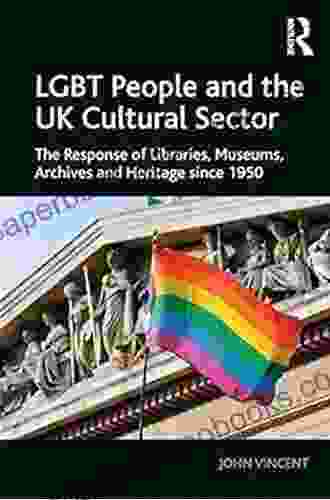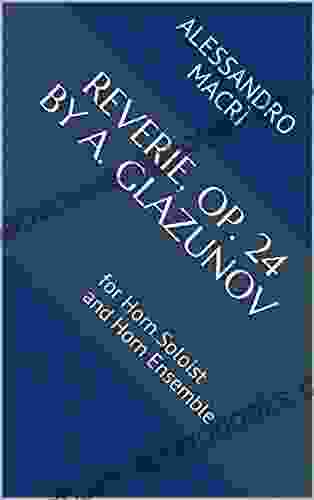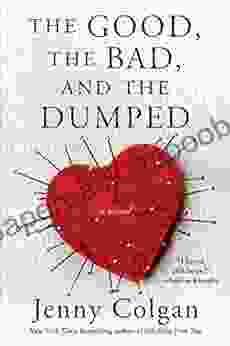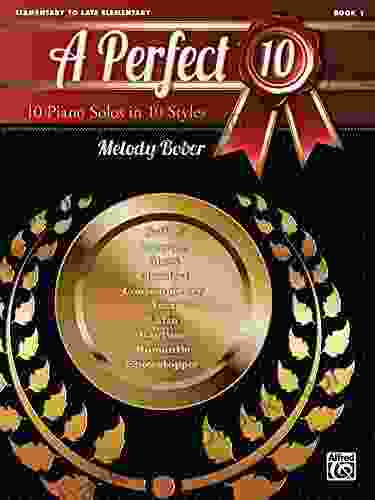LGBTQ+ People and the UK Cultural Sector: Exploring Identity, Representation, and Inclusion

The cultural sector plays a vital role in shaping our understanding of the world and our place in it. It has the power to inspire, challenge, and educate, and to reflect and shape our values and beliefs. For LGBTQ+ people, the cultural sector can be a place of affirmation, visibility, and connection. It can also be a source of challenge and exclusion.
This research paper explores the experiences of LGBTQ+ people in the UK cultural sector. It draws on in-depth interviews with LGBTQ+ artists, performers, and cultural workers, as well as research on the representation of LGBTQ+ people in the media and the arts. The paper examines the challenges that LGBTQ+ people face in the cultural sector, as well as the strategies that they have developed to overcome them.
5 out of 5
| Language | : | English |
| File size | : | 1308 KB |
| Text-to-Speech | : | Enabled |
| Screen Reader | : | Supported |
| Enhanced typesetting | : | Enabled |
| Word Wise | : | Enabled |
| Print length | : | 231 pages |
Challenges
LGBTQ+ people face a number of challenges in the cultural sector. These challenges include:
- Discrimination: LGBTQ+ people may face discrimination in the cultural sector, both at the individual and institutional level. This discrimination can take a variety of forms, including homophobia, biphobia, and transphobia.
- Lack of representation: LGBTQ+ people are often underrepresented in the cultural sector. This lack of representation can lead to a sense of invisibility and exclusion, and can make it difficult for LGBTQ+ people to see themselves reflected in the world around them.
- Stereotyping: LGBTQ+ people are often stereotyped in the media and the arts. These stereotypes can be harmful and limiting, and can make it difficult for LGBTQ+ people to be seen as complex and multifaceted individuals.
- Lack of support: LGBTQ+ people may lack access to support services and resources in the cultural sector. This lack of support can make it difficult for LGBTQ+ people to thrive in the cultural sector, and can lead to burnout and other negative outcomes.
Strategies
Despite the challenges that they face, LGBTQ+ people have developed a number of strategies to overcome them. These strategies include:
- Creating their own spaces: LGBTQ+ people have created their own spaces within the cultural sector, where they can feel safe and supported. These spaces include LGBTQ+ arts organizations, festivals, and events.
- Building alliances: LGBTQ+ people have built alliances with other marginalized groups, such as women, people of color, and people with disabilities. These alliances have helped to create a more inclusive and equitable cultural sector.
- Challenging stereotypes: LGBTQ+ people have challenged stereotypes of LGBTQ+ people in the media and the arts. They have done this by creating their own work, speaking out against discrimination, and supporting LGBTQ+ organizations.
- Seeking support: LGBTQ+ people have sought support from each other and from allies in the cultural sector. This support has helped LGBTQ+ people to thrive in the cultural sector, and to make it a more inclusive and equitable place.
Recommendations
The following recommendations are intended to help make the UK cultural sector more inclusive and equitable for LGBTQ+ people:
- Fund LGBTQ+ arts organizations: The government should provide funding to LGBTQ+ arts organizations. This funding would help to support the creation of safe and supportive spaces for LGBTQ+ people in the cultural sector.
- Increase representation of LGBTQ+ people in the media and the arts: The media and the arts should increase the representation of LGBTQ+ people in their work. This representation should be authentic and nuanced, and should reflect the diversity of the LGBTQ+ community.
- Challenge stereotypes of LGBTQ+ people: The media and the arts should challenge stereotypes of LGBTQ+ people. They should do this by creating complex and multifaceted characters, and by telling stories that challenge traditional notions of gender and sexuality.
- Provide support for LGBTQ+ people in the cultural sector: The cultural sector should provide support for LGBTQ+ people. This support should include access to support services, resources, and mentorship opportunities.
LGBTQ+ people have made significant contributions to the UK cultural sector. They have created groundbreaking work, challenged stereotypes, and inspired generations of people. However, LGBTQ+ people still face a number of challenges in the cultural sector. These challenges include discrimination, lack of representation, stereotyping, and lack of support. The recommendations in this report are intended to help make the UK cultural sector more inclusive and equitable for LGBTQ+ people. By taking these steps, we can create a cultural sector that is truly representative of all of our diverse communities.
References
- Brown, M. E. (2019). Queer aesthetics and the limits of representation. Routledge.
- Clements, R. (2018). The representation of LGBTQ+ people in the UK media: A critical review. Media, Culture & Society, 40(2),289-306.
- Dean, M. (2017). Making a queer scene: Sexuality and subjectivity in postwar Britain. Manchester University Press.
- Epstein, D. (2017). Challenging lesbian and gay inequality in contemporary Britain: The fight for civil partnership. Routledge.
- Esteban, M. (2019). Queer (in)visibility and the media: Representation, identity, and social change. Routledge.
- Halberstam, J. (2011). The queer art of failure. Duke University Press.
- Johnson, E. P. (2016). The intersection of race and sexual orientation in the UK cultural sector: A qualitative study. Cultural Studies, 29(5-6),792-814.
- Kidd, D. (2018). Queer subjectivities: Towards a cultural politics of queer performance. Routledge.
- Lorde, A. (2007). Sister outsider: Essays and speeches. Crossing Press.
- McRobbie, A. (2017). Top girls: Feminism and the politics of sexuality. Routledge.
- Puar, J. K. (2017). The right to maim: Disability, capacity, and the meaning of life. Duke University Press.
- Sedgwick, E. K. (1990). Epistemology of the closet. University of California Press.
Image Credits
- Image 1: Photo by Brooke Cagle on Unsplash
- Image 2: Photo by Benjamin Davies on Unsplash
- Image 3: Photo by Jared Rice on Unsplash
5 out of 5
| Language | : | English |
| File size | : | 1308 KB |
| Text-to-Speech | : | Enabled |
| Screen Reader | : | Supported |
| Enhanced typesetting | : | Enabled |
| Word Wise | : | Enabled |
| Print length | : | 231 pages |
Do you want to contribute by writing guest posts on this blog?
Please contact us and send us a resume of previous articles that you have written.
 Book
Book Novel
Novel Page
Page Chapter
Chapter Text
Text Story
Story Genre
Genre Reader
Reader Library
Library Paperback
Paperback E-book
E-book Magazine
Magazine Newspaper
Newspaper Paragraph
Paragraph Sentence
Sentence Bookmark
Bookmark Shelf
Shelf Glossary
Glossary Bibliography
Bibliography Foreword
Foreword Preface
Preface Synopsis
Synopsis Annotation
Annotation Footnote
Footnote Manuscript
Manuscript Scroll
Scroll Codex
Codex Tome
Tome Bestseller
Bestseller Classics
Classics Library card
Library card Narrative
Narrative Biography
Biography Autobiography
Autobiography Memoir
Memoir Reference
Reference Encyclopedia
Encyclopedia Kristina Smith
Kristina Smith Lisa Bonham
Lisa Bonham Jennyandteddy
Jennyandteddy Justina Ireland
Justina Ireland Jim Hasse
Jim Hasse Joe Writeson
Joe Writeson W S Graham
W S Graham Louisa Young
Louisa Young Joan Shapiro
Joan Shapiro Jennise Beverly
Jennise Beverly Jessica Gadziala
Jessica Gadziala Jennie Guise
Jennie Guise Jeanne Kalogridis
Jeanne Kalogridis Tyson Seburn
Tyson Seburn Jeffrey J Smith
Jeffrey J Smith Jlh Tavares
Jlh Tavares W Lance Bennett
W Lance Bennett Jillian Quinn
Jillian Quinn Nancy Moore
Nancy Moore Jeffery H Haskell
Jeffery H Haskell
Light bulbAdvertise smarter! Our strategic ad space ensures maximum exposure. Reserve your spot today!

 Christian CarterIt's Never Too Late to Play Piano: The Ultimate Guide for Beginners at Any...
Christian CarterIt's Never Too Late to Play Piano: The Ultimate Guide for Beginners at Any... Graham BlairFollow ·19.8k
Graham BlairFollow ·19.8k Edison MitchellFollow ·15.3k
Edison MitchellFollow ·15.3k Kelly BlairFollow ·10.6k
Kelly BlairFollow ·10.6k Chad PriceFollow ·14.9k
Chad PriceFollow ·14.9k Jarrett BlairFollow ·13k
Jarrett BlairFollow ·13k Emilio CoxFollow ·7.4k
Emilio CoxFollow ·7.4k Simon MitchellFollow ·12.4k
Simon MitchellFollow ·12.4k Neil GaimanFollow ·16.8k
Neil GaimanFollow ·16.8k
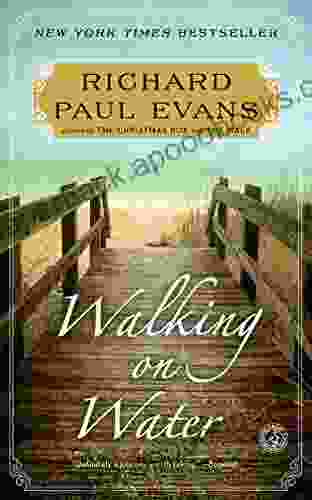
 Preston Simmons
Preston SimmonsEmbark on a Literary Odyssey with "Walking on Water": A...
Prepare to be swept...

 Ernesto Sabato
Ernesto SabatoUnlocking Policy Analysis: Dive into the Intricacies of...
: The Realm of Policy...
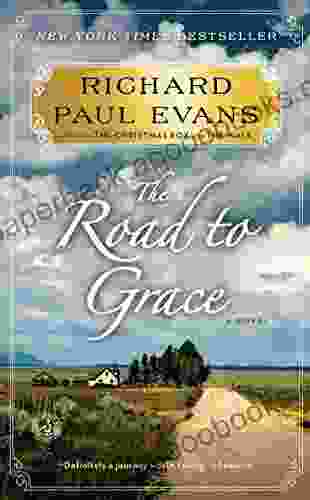
 Forrest Reed
Forrest ReedThe Road to Grace Walk: A Journey of Spiritual Growth and...
In the tapestry of life, we...
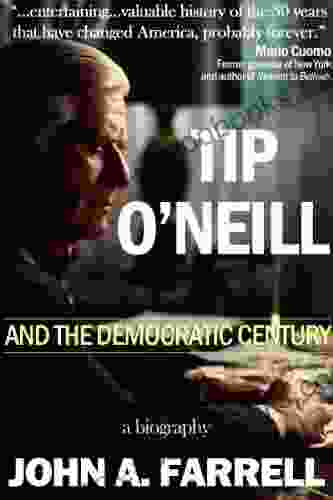
 Evan Simmons
Evan SimmonsTip Neill and the Democratic Century: A Political Odyssey...
The Rise of a Political Giant In the...

 Mark Mitchell
Mark MitchellUnwrap the Magic: A Review of Christmas Memory by Richard...
As the cold winter months draw near, and...
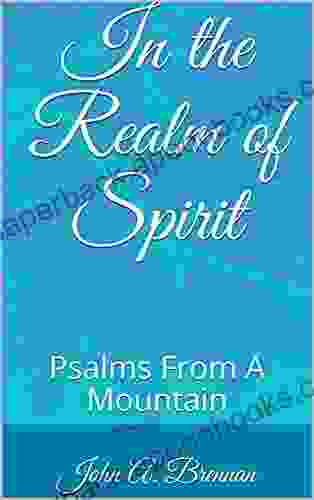
 Percy Bysshe Shelley
Percy Bysshe ShelleyBeyond the Veil: Delve into the Realm of Spirit with In...
Unveiling the Mysteries of the Unseen...
5 out of 5
| Language | : | English |
| File size | : | 1308 KB |
| Text-to-Speech | : | Enabled |
| Screen Reader | : | Supported |
| Enhanced typesetting | : | Enabled |
| Word Wise | : | Enabled |
| Print length | : | 231 pages |


